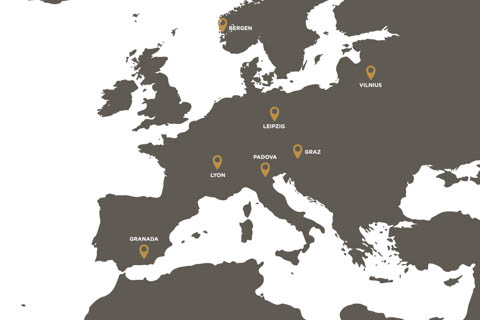 |
Faculty
Faculty of Mathematics and Informatics |
|

|
Scope of studies and length
90 ECTS credits, 1.5 years |
|

|
Qualification awarded
Master in Computing |
|

|
Application deadline*
1 May / 1 July |
|

|
Language
English |
|

|
Tuition fee per year*
5 538 € |
|

|
Start of studies
1 September
|
 |
City
Vilnius |
*The tuition fee is aligned with the national standard tuition fee and is therefore subject to change.
APPLY NOW
The Computer Modelling programme ensures students learn to use computer modelling technologies and to participate in their development, to participate in the generation and analysis of hypotheses and ideas, scientific, empirical and applied research, and the interpretation of results, to develop research and analytical skills and a professional ethics code, and to learn how to generate reports.
Programme structure
| Course unit title |
ECTS
credits
|
|---|
| Course unit title |
ECTS
credits
|
|---|
|
1 semester
Compulsory courses
Spatial Databases
Methods of Cryptography
Methods of Nonlinear Modelling
Cyber Security Technologies
Elective courses*
Programming in Cloud Computing
Computational Geometry Algorithms
Digital Forensics
|
30.0
5.0
5.0
10.0
5.0
5.0
5.0
5.0
|
|
2 semester
Compulsory courses
Data Analysis
Deep Learning
Scientific Research Work
Signal Analysis and Processing
Elective courses*
Multidimensional Data Visualization
Information Security Management
|
30.0
5.0
5.0
10.0
5.0
5.0
5.0
|
|
3 semester
Compulsory courses
Master Thesis
|
30.0
30.0
|
*The supply of elective courses might vary depending on availability.
Key Learning Outcomes
- Data Management, Modelling and Analysis (25%)
- Modern Technologies (16%)
- Scientific Research (35%)
- Optional Subjects (12.2%)
Programme Specific Requirements
- Completed bachelor’s degree studies in the biomedicine or physical and technological sciences study field groups or bridging studies in informatics.
- The motivational interview is organised remotely.
In addition, all applicants have to fulfil the general admission requirements.
Why choose this programme?
- The specific character of the programme is focused on making constant improvements of various kinds, such as by adding courses on cloud computing, images and signal processing, web services, etc.
- Students will also gain skills in relation to research work, including HPC (high-performance computing), grid/cloud computing and using a supercomputer.
|
What comes after?
- Our graduates obtain positions in enterprises in the national or private sector where applied practical or scientific computing is undertaken, or where problems in physical sciences are solved using mathematical or computer models that benefit from modern technologies.
- The graduates may be employed at universities, research and computer design institutions, industrial enterprises, private, banking and insurance sectors, or in other companies where critical thinking, research and analytical skills, usage of computation and IT, and foreign language abilities are required.
|


